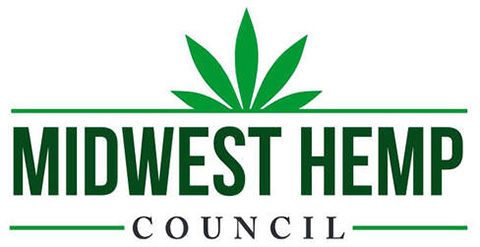
As we covered earlier this year, recent statements from top U.S. Food and Drug Administration (FDA) officials revived hopes that, after years of inaction, the agency might soon hand down regulations for CBD and other hemp-derived cannabinoids.
Late last week, however, an announcement by Janet Woodcock, Principal Deputy Commissioner at the FDA, dashed those hopes. In the January 26 statement, Woodcock said, “after careful review, the FDA has concluded that a new regulatory pathway for CBD is needed that balances individuals’ desire for access to CBD products with the regulatory oversight needed to manage risks.” She added that the agency did not have the authority to develop the new pathway on its own, but it is prepared to work with Congress “on a new way forward.”
At the same time, Woodcock noted the FDA was also denying three citizen petitions “that had asked the agency to conduct rulemaking to allow the marketing of CBD products as dietary supplements.” According to the U.S. Hemp Roundtable (USHR), those petitions were filed by the Consumer Health Products Association (CHPA), the Council For Responsible Nutrition (CRN), and the Natural Products Association (NPA).
The FDA’s now-definitive refusal to regulate CBD without further action from Congress has led to anxious responses from some hemp advocates. Hemp Benchmarks spoke to attorneys who specialize in hemp-related regulatory issues about their concerns, as well as what might happen next for CBD.
“This is Not It”
Hemp stakeholders’ reactions to the FDA announcement were swift and disapproving.
“When it comes to the safety of CBD, the FDA gets it wrong,” Jonathan Miller, USHR General Counsel, said in a statement soon after Woodcock’s announcement. “Contrary to the FDA’s continued assertions regarding the safety of CBD, there is clear, established evidence of safety over the years.”
Miller also noted that USHR recently met with FDA officials and shared with them “a broad range of safety studies showing that standard CBD serving sizes are safe, while the FDA continues to rely on pharmaceutical studies that show risk at significantly larger doses that are not commonly found in CBD products sold at retail.”
Scott Melville, CHPA President and CEO, said the FDA’s indecision on CBD has been ongoing for “far too long,” with that indecisiveness enabling the current “confused marketplace of unregulated CBD products … that does not serve the public health.”
“There is a legal process to evaluate the safety of new dietary ingredients,” Melville added in his comments, “and this is not it.”
Frustration with the FDA’s “Punt”
Shawn Hauser is a partner at the Denver-based Vicente Sederberg law firm and co-chair of the firm’s Hemp and Cannabinoids Department. She described the announcement as “somewhat unsurprising, considering FDA’s clear reluctance for years to use its authority under FDCA [the Federal Food, Drug, and Cosmetic Act] to make an exception to its rule barring substances studied and approved as pharmaceutical drugs (CBD and THC) from being regulated as foods and dietary supplements.” Hauser told Hemp Benchmarks that, “considering the safety profile and botanical origin of CBD, the cannabinoid appears to be the type of ingredient described in the FDCA’s regulatory override exception.”
Despite being unsurprised, Hauser also expressed exasperation at the FDA announcement. The agency’s safety concerns, she noted, have been gathered from “the wealth of data they have collected on CBD, such as potential harm to liver, impact on the reproductive system, and interactions with medication at high doses.” Those concerns are legitimate, Hauser said, “but they are certainly not uncharacteristic of other legal ingredients for which safety is addressed through the existing process for dietary supplement safety.”
While both the hemp industry and the FDA have acknowledged the regulatory process is imperfect – and that the federal Dietary Supplement Health and Education Act (DSHEA) of 1994, which transformed the FDA’s authority to regulate dietary supplements – is “long overdue for modernization, this should not bar CBD from being treated like other ingredients with similar or even more concerning safety profiles,” Hauser asserted.
Hauser expects the announcement will affect the 2023 Farm Bill and any related cannabis regulation. “[T]he FDA’s punt is incredibly frustrating,” she added, “given the time it took them … and especially considering the unstable structure the industry is forced to operate in.”
A Long-Term Industry Win?
Lachlan Huck is a corporate attorney at Seattle-based law firm Lane Powell, where he advises cannabis startup clients on a variety of issues. He believes the FDA announcement could signal more scrutiny from the FDA of mislabeled and deceptively-marketed CBD products. The creation of a different regulatory pathway, he told Hemp Benchmarks, may be “unnecessary given the current framework.” However, he continued, “we need to know more about the FDA’s proposed approach.”
If that approach creates new funding for CBD research, Huck added, “it may ultimately be a win for the CBD industry, which has struggled to create a body of federally-funded research proving CBD’s safety.” He also said the FDA’s new actions could prompt CBD companies to invest further in their marketing and branding programs, “with an eye towards compliance.”
For her part, Vicente Sederberg’s Hauser expects continued challenges ahead for the CBD industry. “The lack of FDA regulations over CBD coupled with its non-enforcement approach,” she said, “has created an unfair playing field where businesses compliant with important product safety regulations and investment in safety studies struggle to compete with non-compliant businesses who don’t have the same costs for testing, safety studies, and other fundamental safety standards.”
The further delay in developing and implementing a stable federal regulatory framework for finished hemp products, Hauser added, also creates “confusion and chaos in the marketplace with consumers and supply chains, where businesses have to comply with a 50-state patchwork of hemp regulations and where regulatory uncertainty makes it challenging to get banking, financial services, investment, and legitimacy from CPG [consumer packaged goods] companies, who were expected to be more prominent players in the space when Congress legalized hemp.”
The Effect on State Cannabinoid Regulations
In what should be a relief to hemp-cannabinoid businesses, Huck doubts the FDA announcement will have any immediate impact on state laws regarding federally-unregulated hemp-derived THC products, such as delta-8 THC. “The announcement does not directly affect state laws related to hemp-derived cannabinoids,” he said.
That sentiment was echoed by Hauser. “Until Congress acts,” she said, “the status quo will likely remain for hemp businesses on the state and local levels. The FDA continues to govern CBD and other hemp-derivatives and considers CBD and THC unlawful ingredients in food and dietary supplements.” Despite the FDA’s announcement, Hauser said hemp companies “should still continue to ensure product safety and invest in fundamental FDA product safety requirements like safety studies, which will ensure they are set up for success and compliance as a new regulatory framework develops.”
“If and when the FDA promulgates rules,” Huck pointed out, “the rules may preempt state level marketing and labeling laws.” However, he noted, “the announcement may prompt state regulatory bodies to update their enforcement rules – or even adopt new regulations – with respect to CBD marketing and labeling in the meantime.”
Possible Legal Recourse?
Asked whether there are any legal actions the CBD industry could take to resolve or remedy the FDA’s stance, Hauser suggested the industry could challenge the agency’s denial of the citizen petitions as unlawful or unreasonable. “There are clear paths to challenge the FDA here,” she said. “There could certainly also be further challenges to the FDA’s application of the drug preclusion to hemp ingredients and its prior rejections of NDINs [the FDA’s New Dietary Ingredients Notification Process].”
In contrast, Lachlan Huck thinks the announcement does not give the cannabinoid industry any possible legal recourse against the FDA. “The industry should, however, devote time and resources toward influencing policymaking at the state and federal level,” he said. “Educated lawmakers make better laws.”
Related Articles:
- Will the Federal Government Finally Regulate CBD and Other Cannabinoids in 2023? (January 12, 2023)
- What Are the Most Recent Trends in Hemp CBD & THC Sales? (November 30, 2022)
- How New Laws and Rulings Might Affect the Hemp-Derived THC Market (July 20, 2022)


